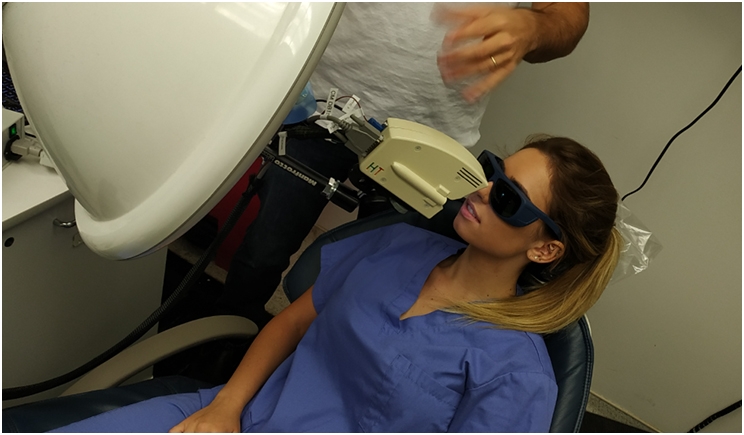
The University of Florida College of Dentistry (UFCD) and HT BioImaging Technologies are testing a new method for detecting premalignant and malignant oral lesions using an infrared device. The HTOScan was designed by engineers and doctors at HT BioImaging Technologies, an Israeli startup company that chose UFCD to run the device’s first clinical trial.
The technology is based on the measurement and registration of heat diffusion and dissipation in the examined tissue, leveraging the unique heat-flow properties of various tissues, for diagnostic purpose. This process is followed by a comprehensive signal analysis, further translated into an image, depicting the probability for cancer in the examined tissue.
After completing a 50-patient preliminary trial in Israel, the pilot study moved to the United States and UFCD. The college’s research team comprises specialists from oral medicine, oral pathology, and oral surgery, including Indraneel Bhattacharyya, BDS, DDS, MS, Joseph Katz, DMD, and John Hardeman, MD, DDS, in addition to clinical research staff.
The year-long study will enroll 300 patients with a clinically suspicious lesion in the oral cavity necessitating a biopsy. Prior to the biopsy, the HTOScan will be used to assess the lesion and later be compared with the pathology report at UFCD. This analysis will enable the continuous ongoing amendment of the analytical algorithms for increased detection capabilities.
Related Articles
Device Detects Cavities Before an X-Ray Can
Canary System Beats Other Methods in Measuring Lesion Depth
Light-Based Screening Device, Optimizes Diagnosis of Oral Lesions











